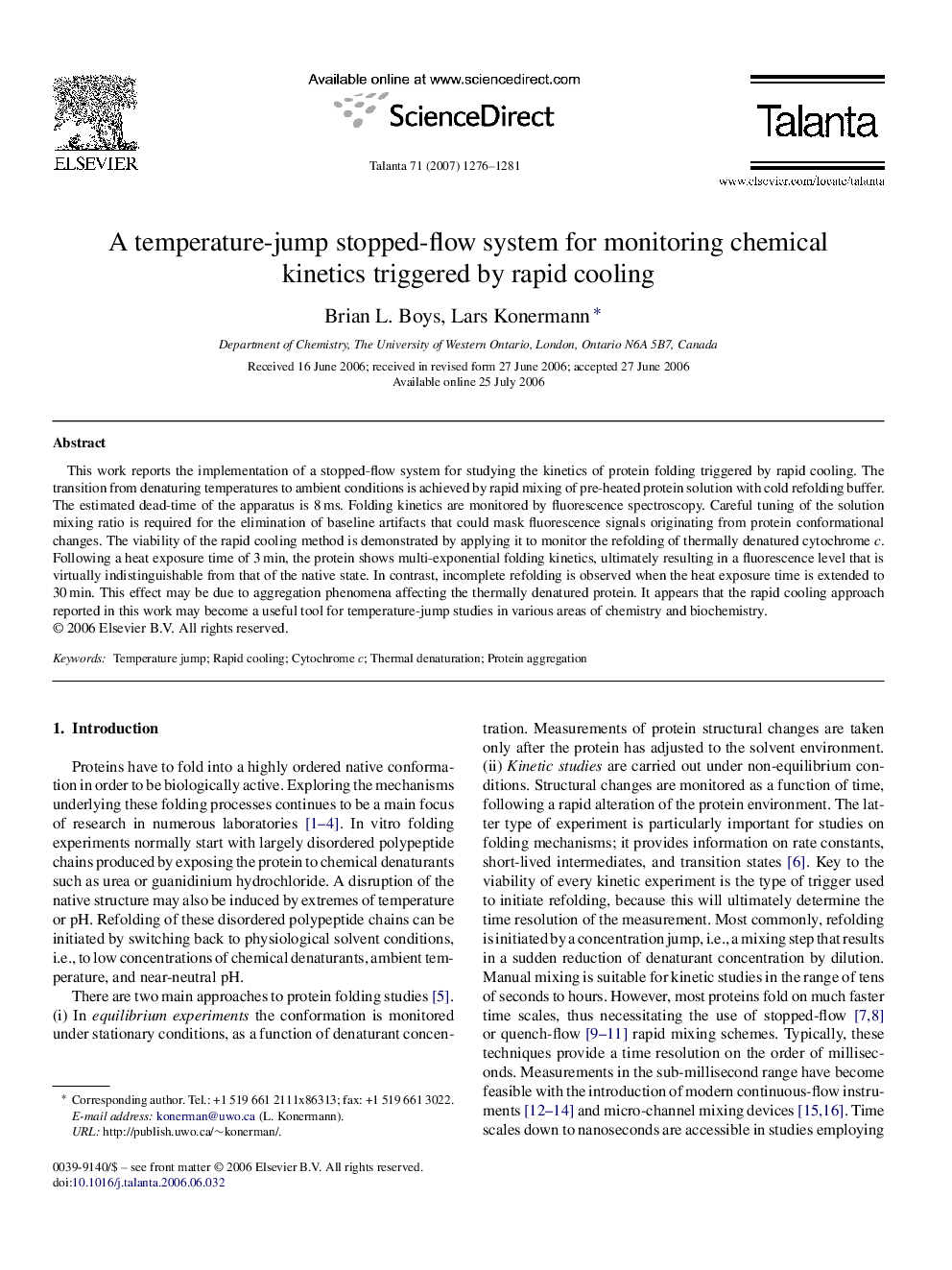| Article ID | Journal | Published Year | Pages | File Type |
|---|---|---|---|---|
| 1246146 | Talanta | 2007 | 6 Pages |
Abstract
This work reports the implementation of a stopped-flow system for studying the kinetics of protein folding triggered by rapid cooling. The transition from denaturing temperatures to ambient conditions is achieved by rapid mixing of pre-heated protein solution with cold refolding buffer. The estimated dead-time of the apparatus is 8Â ms. Folding kinetics are monitored by fluorescence spectroscopy. Careful tuning of the solution mixing ratio is required for the elimination of baseline artifacts that could mask fluorescence signals originating from protein conformational changes. The viability of the rapid cooling method is demonstrated by applying it to monitor the refolding of thermally denatured cytochrome c. Following a heat exposure time of 3Â min, the protein shows multi-exponential folding kinetics, ultimately resulting in a fluorescence level that is virtually indistinguishable from that of the native state. In contrast, incomplete refolding is observed when the heat exposure time is extended to 30Â min. This effect may be due to aggregation phenomena affecting the thermally denatured protein. It appears that the rapid cooling approach reported in this work may become a useful tool for temperature-jump studies in various areas of chemistry and biochemistry.
Related Topics
Physical Sciences and Engineering
Chemistry
Analytical Chemistry
Authors
Brian L. Boys, Lars Konermann,
